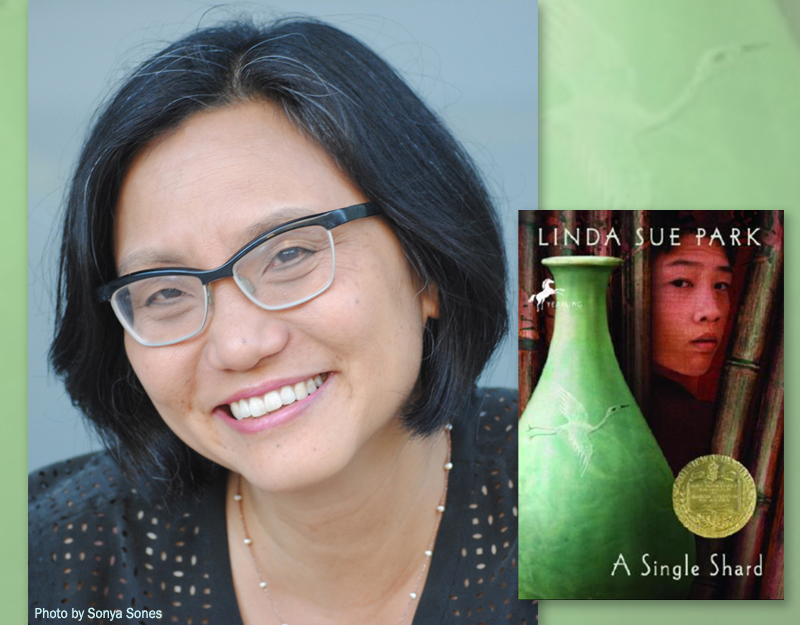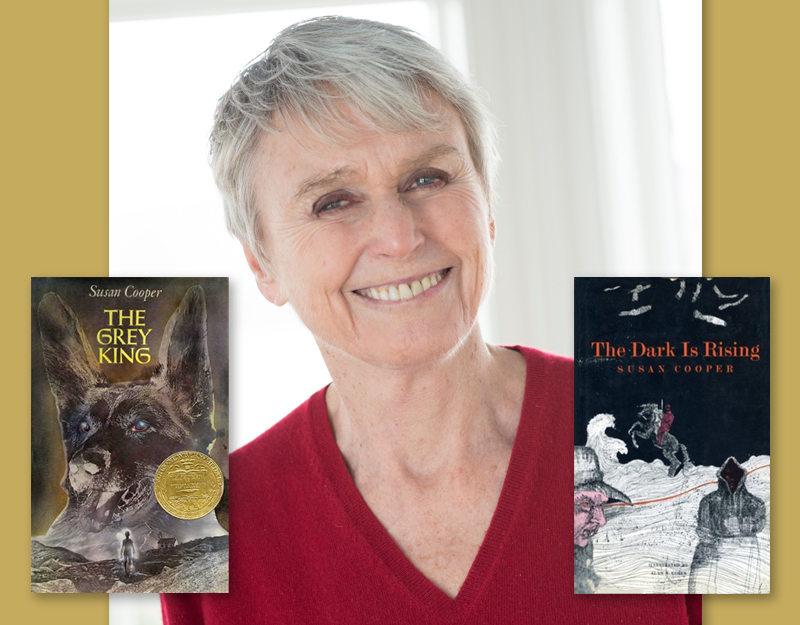Can Mythology or Folklore Win the Newbery Medal?
Every once in a blue moon the Newbery committee recognizes a work of mythology or folklore. Don’t hold your breath, though, as the last book recognized was IN THE BEGINNING by Virginia Hamilton (1989), and before that WHEN SHLEMIEL WENT TO WARSAW (1969) and ZLATEH THE GOAT (1967), both by Isaac Bashevis Singer. THE WHITE STAG by Kate Seredy did win the Newbery Medal, but that was way back in 1936. It’s so rare that most people probably don’t even realize these genres are eligible, but the criteria state that–
“Original work” means that the text was created by this writer and no one else. It may include original retellings of traditional literature, provided the words are the author’s own.
ADVERTISEMENT
ADVERTISEMENT
If the committee feels so inclined there are a couple of distinguished books to consider from these genres this year.
 WITH A MIGHTY HAND by Amy Ehrlich is a retelling of the Torah, what Christians know as the first five books of the Old Testament. Ehrlich has crafted a wonderful free verse version that focuses more on the story and less on the law.
WITH A MIGHTY HAND by Amy Ehrlich is a retelling of the Torah, what Christians know as the first five books of the Old Testament. Ehrlich has crafted a wonderful free verse version that focuses more on the story and less on the law.
At the beginning, the earth was wild and empty, with darkness
sweeping over the water.
God said, “Let there be light!” And there was light.
Then God separated the light from the darkness.
God called the light Day. And the darkness He called Night.
Evening came and morning–the first day.
The decision to render this narrative in free verse is an inspired choice, mirroring the decision to parse out the story from the scripture. It’s like all the excess fat has been trimmed, both literally and figuratively. I’ve read these stories numerous times in the King James Version of the Bible, and I’m in love with that stylistic language, and don’t take well to the absence of it, but surprisingly the language here works for me. Occasionally, I felt like the story had been interpreted to remove the ambiguity, however. The rape of Dinah, for example, which has historically been called that to justify her brothers’ actions doesn’t read that way to me. Or the whole cryptic affair between Noah, Ham, and Canaan–the alleged incest and the resulting curse on the grandson. There may be some differences between Jewish and Christian sources that may account for some of this, but I’m skeptical. It’s not enough to dampen my enthusiasm for the book, though.
An interesting aside: I’m not sure whether the Caldecott committee will consider this an illustrated book rather than a picture book (probably), but I think the artistic choices in the book are quite interesting, especially in the subversion of the symbolic use of color. We not only have very dark-skinned Israelites–they neither look Mediterranean nor African, but something in between, perhaps even Arabic–but there’s the depiction of the angelic messengers clothed not in traditional white, but black. This is the kind of book Betsy Bird wanted THE DAY THE CRAYONS QUIT to be.
 TREASURY OF EGYPTIAN MYTHOLOGY by Donna Jo Napoli is a companion volume to her earlier book, TREASURY OF GREEK MYTHOLOGY, that I praised on this blog a couple of years ago.
TREASURY OF EGYPTIAN MYTHOLOGY by Donna Jo Napoli is a companion volume to her earlier book, TREASURY OF GREEK MYTHOLOGY, that I praised on this blog a couple of years ago.
In the beginning, before there was time, water spread in every direction, though there was no direction really because there was no up, no down; no east, no west; no inside, no outside. This water lay cold and colorless. A wet nothingness that hummed nnnnnnnun. Nun, nun. This was the cosmos, hardly more than empty chaos. There was but a single entity, so there was no question of order: The cosmos was ordered perforce. The order of a dot, a circle, a sphere, without beginning or end. Utter consistency. Perfect order.
You can see from this opening paragraph that Napoli has crafted a tone that is, at once, colloquial and inviting, on the one hand, and yet retains that stylized mythic quality, on the other. The Greek myths come from a relatively few number of sources, but Napoli really had her work cut out for her here, tracking down various sources from which to cobble this impressive collection. Note to publishers: Dare we hope for TREASURY OF NORSE MYTHOLOGY? Please?
Filed under: Uncategorized
About Jonathan Hunt
Jonathan Hunt is the Coordinator of Library Media Services at the San Diego County Office of Education. He served on the 2006 Newbery committee, and has also judged the Caldecott Medal, the Printz Award, the Boston Globe-Horn Book Awards, and the Los Angeles Times Book Prize. You can reach him at hunt_yellow@yahoo.com
ADVERTISEMENT
ADVERTISEMENT
SLJ Blog Network
One Star Review, Guess Who? (#202)
This Q&A is Going Exactly As Planned: A Talk with Tao Nyeu About Her Latest Book
Exclusive: Giant Magical Otters Invade New Hex Vet Graphic Novel | News
Parsing Religion in Public Schools
Take Five: LGBTQIA+ Middle Grade Novels
ADVERTISEMENT








“Occasionally, I felt like the story had been interpreted to remove the ambiguity, however” — that was my big issue with this book. Made it a non-starter for me.
This month’s (December) SLJ contains my letter to the editor concerning this book and there is a response from the reviewer of the book also. My concerns were about the choice of using the word “Yahweh” for God’s name, because the Jewish religion does not practice this, and in fact, it is forbidden. I don’t think you can see the letters to the editor online, but basically, I am stating that I cannot use this book in my Jewish day school, because, in fact, it is unfortunately offensive to many Jews. Author Amy Ehrlich addresses this issue in her end-notes in the book, but she clearly decided not to use the normative terms, “Adonai”, “Elohim”, or “God”. Just saying or reading “Yahweh” is a Christian usage, (and a big no-no for Jews), and that is why it saddened me that I could not buy this book for my school.
An interesting aside: The Catholic Church doesn’t promote the pronunciation of God’s name either, instead using the ancient practice of substitution. All the Christian hymns and prayers mentioning God’s name have replace it with something else, such as Lord.
Both WITH A MIGHTY HAND and TREASURY OF EGYPTIAN MYTHOLOGY made the Kirkus Best Books lists. With Booklist Editors’ Choice out, here’s how things stand.
five lists–
MR. TIGER GOES WILD
LOCOMOTIVE
ELEANOR & PARK
P.S. BE ELEVEN
BOXERS/SAINTS
THE THING ABOUT LUCK
four lists–
MR. WUFFLES
MARCH
IF YOU WANT TO SEE A WHALE
THE TORTOISE AND THE HARE
PARROTS OVER PUERTO RICO
DOLL BONES
FLORA & ULYSSES
FAR FAR AWAY
ON A BEAM OF LIGHT
three lists–
THE DARK
REALITY BOY
ROSE UNDER FIRE
BLUFFTON
JOURNEY
ALL THE TRUTH THAT’S IN ME
FLORA & FLAMINGO
PENNY AND HER MARBLE
THE YEAR OF BILLY MILLER
A CORNER OF WHITE
WINGER
MIDWINTERBLOOD
THE TRUE BLUE SCOUTS OF SUGAR MAN SWAMP
JINX
EMANCIPATION PROCLAMATION
A SPLASH OF RED
PICTURE ME GONE
COURAGE HAS NO COLOR
BECOMING BEN FRANKLIN
HOW TO CATCH A BOGLE
NAVIGATING EARLY
two lists–
THE WAR WITHIN THESE WALLS
LITTLE RED WRITING
THE COLDEST GIRL IN COLDTOWN
MORE THAN THIS
DREAM THIEVES
SEX & VIOLENCE
SERAFINA’S PROMISE
SCALY SPOTTED FEATHERED FRILLED
BUILDING OUR HOUSE
LOOK UP!
THE GREAT AMERICAN DUST BOWL
HAVE YOU SEEN MY NEW BLUE SOCKS?
MAD POTTER
GO: A KIDD’S GUIDE TO GRAPHIC DESIGN
DIEGO RIVERA
COUNTING BY 7s
GHOST HAWK
THE BOY WHO LOVED MATH
THE ANIMAL BOOK
ROOFTOPPERS
EARTH GIRL
SEPTEMBER GIRLS
YAQUI DELAGO WANTS TO KICK YOUR ASS
DARIUS & TWIG
Will there be a separate new entry to discuss With a Mighty Hand now that it’s on the final discussions list?
I’ll leave that to Jonathan…but will invite everyone to let us know which other titles they’d like to see discussed. Thanks!
Roxanne, when you say it made the final discussion list, you’re talking about Notables, right? I’m not sure we have enough people interested in it to justify another post, so why don’t we just use this one. I can see from your recent blog entry that you did not care for it, but I will say that these stories much like folktales really don’t have lessons, or perhaps what I should say is that you can spin them a dozen different ways to make your own lessons. If you feel the stories aren’t rich enough then perhaps that is a failing on Ehrlich’s part.
For some reason I had the impression that there is a “final group of books” to be discussed and With A Mighty Hand is on it. I’m mistaken.
Jonathan, I actually think the stories are quite rich. And very powerful because of the way Ehrlich selected the details — she created an immediacy that reading the original text (translated, albeit) does not have. I’m more questioning how these stories are meant to be perceived by young people — perhaps as young as 8 years old, right? IF that’s the case, then, what will these young readers take away (as lessons? messages? notions? ideas?) from passages that proclaim one must strike down (to the death) others who are non-believers of this particular God or that no matter how a person acts, his fate (reward or punishment) pretty much depends on whether he happens to be the pre-selected one by a fairly precarious God.